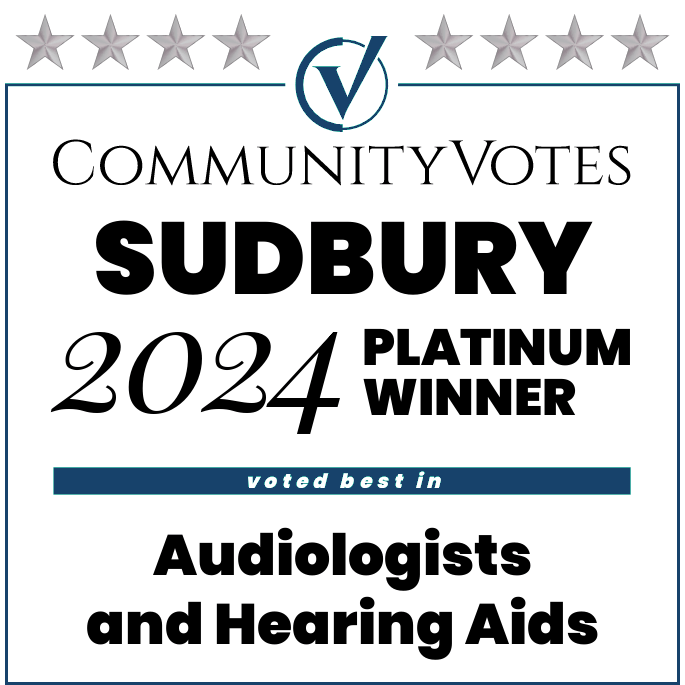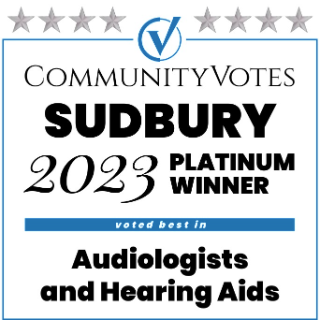
Frequently Asked Questions
We know that informed patients are better equipped to care for their hearing health. Here are typical questions that our team receives. If you have other questions that are not answered here, reach out to our office we are always happy to help.
Northern Hearing Health Centre
Frequently Asked Questions
We know that informed patients are better equipped to care for their hearing health. Here are typical questions that our team receives. If you have other questions that are not answered here, reach out to our office we are always happy to help.
We look forward to helping you in any way we can.
An audiologist is a hearing healthcare professional who assesses and treats hearing loss. Most audiologists in Canada hold a master’s degree and some hold a Doctorate degree in Audiology. Some audiologists have completed additional exams to become nationally certified. Audiologists require registration with a regulatory college in their provinces in order to practice.
Being around someone who is struggling with their hearing can be frustrating and it often puts a strain on relationships. Untreated hearing loss can cause a person to lose confidence, withdraw socially and become isolated and/or depressed. It has also been linked with increased risk of dementia and falls. We check our vision and clean our teeth regularly, but often we don’t give the same attention to our hearing. Hearing assessments should be a part of overall health checks after the age of 55. Baseline hearing assessments are important measures that help us monitor your hearing and any changes in hearing over time.
Hearing tests are only covered by OHIP if the testing is done in an Ear Nose and Throat Specialist’s office. Some clinics offer “free hearing tests,” but they are often screenings to see if you pass or fail and not a full diagnostic test. If the test is more complete, and the client wants a copy of the test or a report sent to their physician, a fee will then apply. We believe in full diagnostic hearing tests. We evaluate all parts of your hearing, explain the results, and send out reports as required.
Patients differ in their hearing needs and goals. As such, solutions are different for everyone and are based on factors such as power requirements, patient lifestyle, features required, accessory needs, goals, finances, and vision/dexterity limitations.
Funding may be available through the Assistive Devices Program, Veterans’ Affairs Canada, The Workplace Safety and Insurance Board, The Ontario Disability Support Program, The Non-Insured Health Benefits Program, Ontario Works and private insurance plans. We also offer hearing aid financing plans.
Tinnitus is the sensation of sound, often described as ringing, buzzing, hissing, or roaring. It can be heard in your ears or in your head and can be intermittent or constant. Many people can tune it out, however others need support in coping as it can cause great distress and affect people in areas such as sleep, concentration, and enjoyment of daily activities. Tinnitus is not curable, but can be managed through treatment.
Over-the-counter hearing aids will be offered in the North American market in the next year or two. These inexpensive models are simply amplifiers that will make everything louder. They will not have the sophistication to make fine tuning preference adjustments, nor have some of the important/sophisticated features that today’s hearing aids are designed to do. Audiologists will not have the ability to adjust or modify sound or fit of these products, therefore no support or replacement parts to repair will be available.
The effectiveness of your hearing aids is dependent on how they are programmed for sound. The way they are programmed and the way they fit are directly related to the unique characteristics of your hearing loss. This is something that only a trained professional can do. Hearing aids also require fine tuning and scientific verification to ensure they’re providing not only enough sound, but not so much that you can cause further damage to your ears. Working with an experienced professional helps educate and acclimatize you to hearing well again and provides ongoing maintenance in order to keep the hearing aids working optimally.
Hearing Aids Will help your hearing
Hearing aids work very well when fit and adjusted properly. They are designed to bring sound back to the brain in impaired ranges. It’s important to understand that hearing aids are not a “cure” for hearing loss, but rather an aid for hearing loss. There will still be situations where hearing speech is difficult. Factors that affect this are the acoustic environment, the extent of the damage to an individual’s auditory system and how long someone has had impaired hearing. We don’t just hear with our ears; we hear with our brains. Learning to hear well again takes practice and improves over time with consistent use and support.

Thank you for voting us the #1 Audiology Clinic!


Thank you for voting us the #1 Audiology Clinic!

